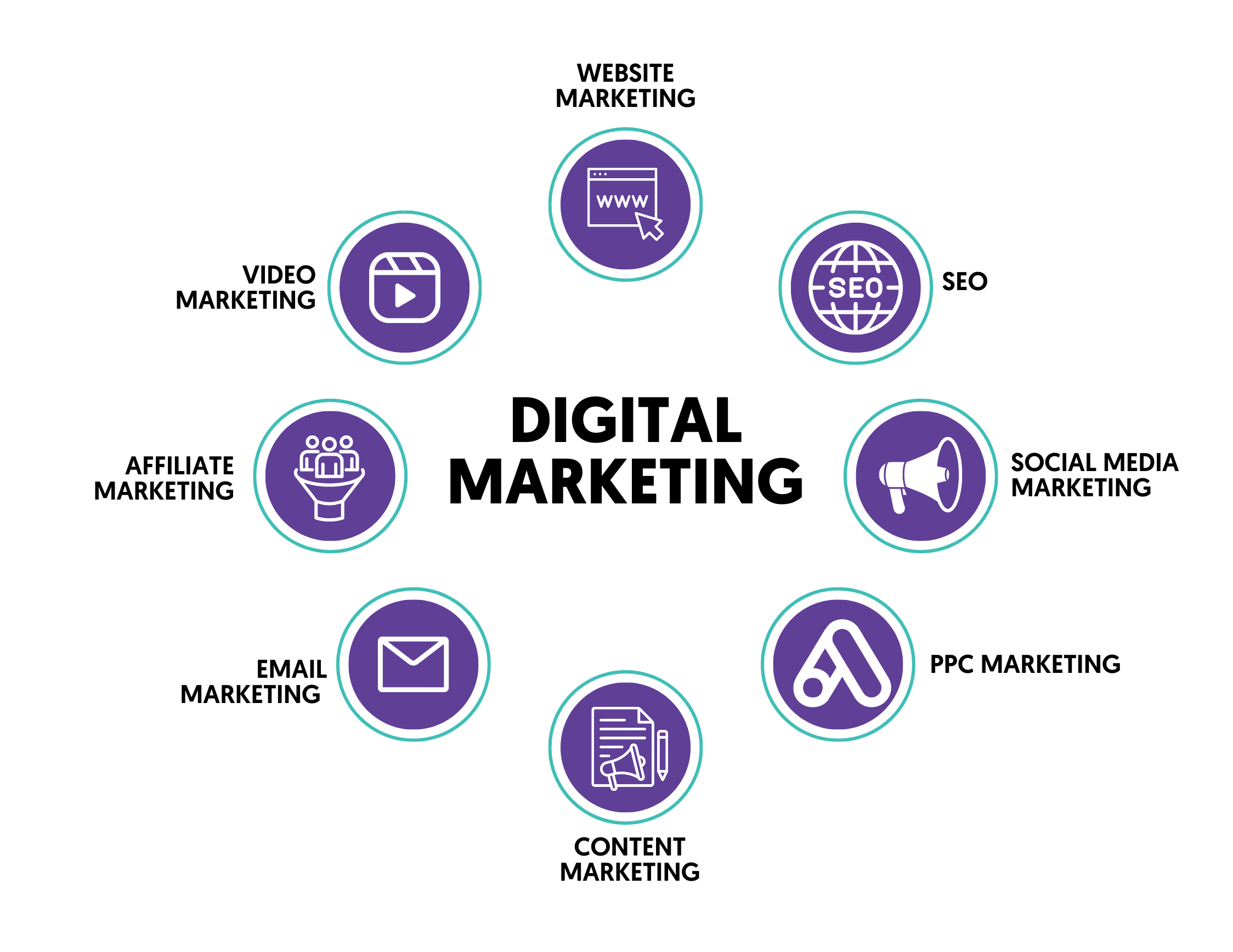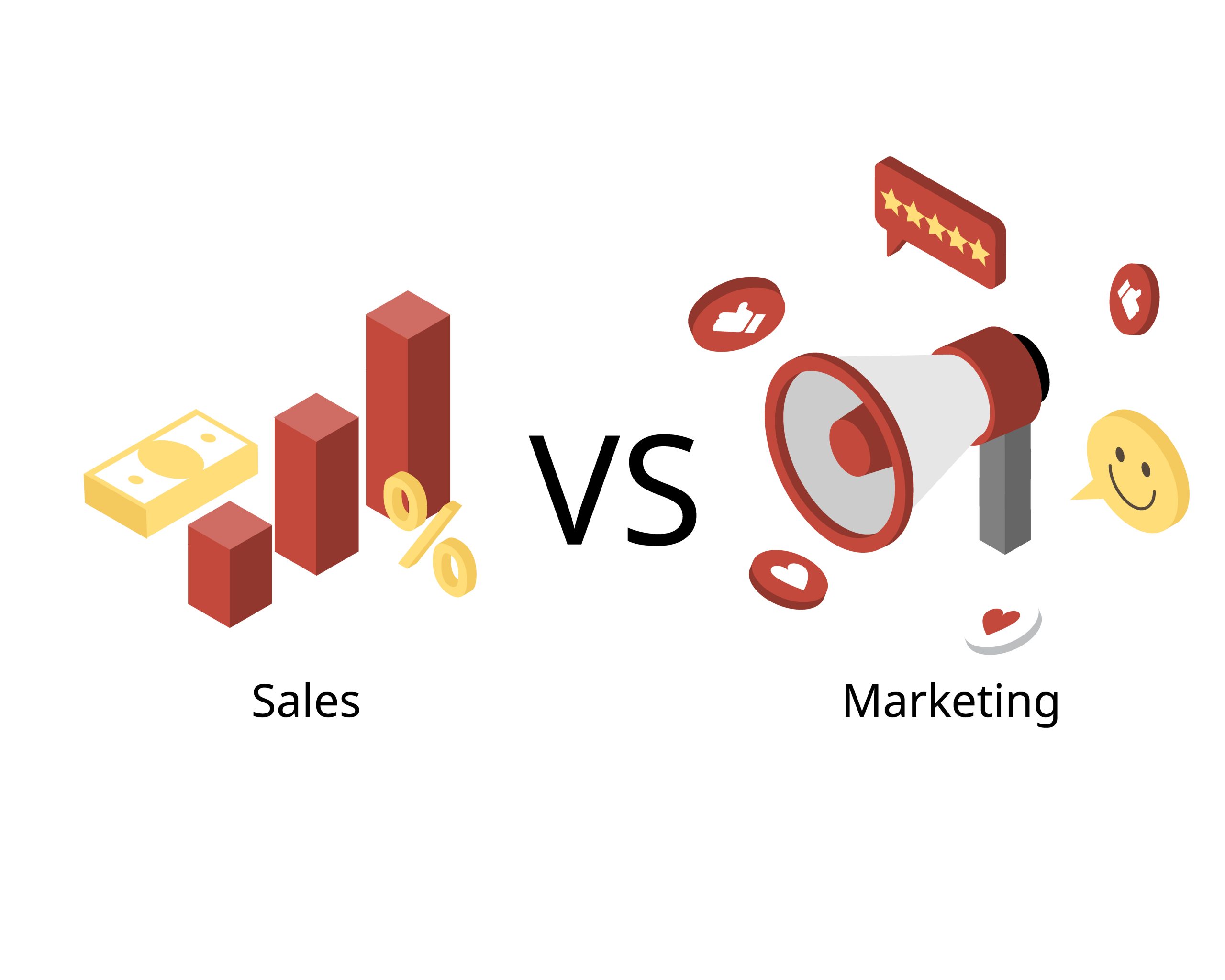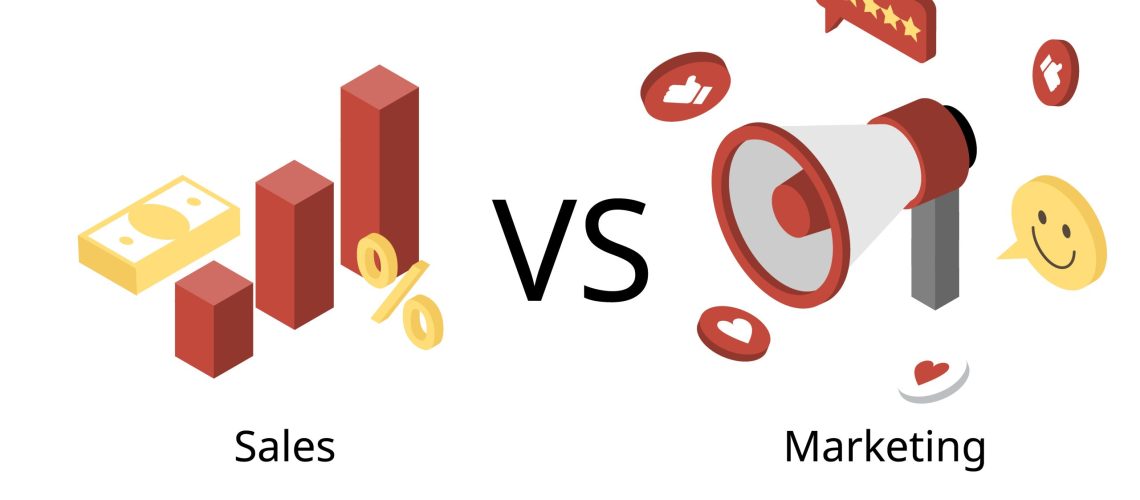Sales and marketing are the dynamic duo of business success!
Running a successful business involves these two crucial components: sales and marketing. They both play essential roles in finding, winning, and keeping customers.
While marketing targets the top of the funnel, reaching the audience and generating leads, sales focuses on sealing the deal, ensuring customers make purchases.
When these forces combine, your business is unstoppable. Understanding their unique strengths can help scale your company’s performance.
What is Sales?

Get 50% Discount to Master ALL Aspects of Digital Marketing That Can Earn You $2,500 - $5,000 a month (Even if you are a complete beginner!)
Our students that intentionally implement what they learn from our digital marketing course make back the entire course fee within a single month or more after completing our course because our course gives them many income generating options with unlimited earning potential with no age or location barrier. The best part is no technical skills are required.
An opportunity to change your lifestyle and make money working from anywhere in the world. The results our students get from our digital marketing course prove this could be applied to any market or country and that it is designed for any skill level and work background.
*By signing up, you agree to our privacy policy and terms of service.
Sales is the skill of convincing people to buy something. It means understanding what customers want, showing them how a product or service can help, and closing the deal.
Salespeople build relationships and make sure customers have a good experience buying things.
Their job is to increase a company’s income and growth by showing how valuable their products or services are. In a nutshell, sales is all about talking to customers, solving their problems, and making a sale.
Different Types of Sales

- Inbound Sales: In this approach, salespeople respond to inquiries and leads that come from marketing efforts or customer questions. They guide customers through their buying journey.
- Outbound Sales: Sales reps in outbound sales actively reach out to potential customers, often through methods like cold calling, direct mail, or email.
- Consultative Selling: Here, sales professionals act as consultants. Their focus is not just on selling but on understanding customer needs and offering tailored solutions.
- Direct Sales: Sales representatives in this category sell products or services directly to consumers. This might happen in customers’ homes or at events.
- Aggressive Selling: This type is all about quick sales. Salespeople aim to close the deal swiftly.
- Need-Oriented Selling: Sellers in this category pay close attention to customers. They ask questions, assess needs, and offer solutions based on what the customer requires.
- Product-Oriented Selling: Here, salespeople focus on explaining every detail about a product to satisfy the customer, often using demonstrations.
- Competition-Oriented Selling: These sales reps strive to stay ahead of the competition. They work hard to persuade customers to buy their product and won’t easily accept a “no.”
What is Marketing?

Source: Google Search Image
Marketing is the process of making a product or service look attractive to people. It involves understanding your customers, telling them why your product or service is awesome, and using smart plans to get them to buy it.
The idea is to bring in customers and keep them coming back for more, which helps your business grow.
Different Types of Marketing

Source: Google Search Image
Marketing can be broadly categorized into various types, each serving different purposes and targeting different audiences. Here are some of the key types of marketing:
- Digital Marketing: This involves promoting products or services using digital technologies, primarily on the internet, including through websites, social media, and email.
- Content Marketing: This strategy focuses on creating and distributing valuable, relevant, and consistent content to attract and retain a clearly defined audience.
- Social Media Marketing: This form of marketing utilizes social media platforms to connect with your audience to build your brand, increase sales, and drive website traffic.
- Influencer Marketing: This involves partnering with influencers who have a dedicated social following to promote your products or services.
- Email Marketing: This is the use of email to promote products or services and build relationships with potential customers or clients.
- Affiliate Marketing: This is a performance-based marketing strategy where a business rewards affiliates for each customer or visitor brought by the affiliate’s marketing efforts.
- Traditional Marketing: Uses traditional channels like TV, radio, print media (newspapers, magazines), and billboards to reach a broad audience.
- Product Marketing: Focuses on promoting a specific product, including market research, pricing, and product launch strategies.
- Cause Marketing: Links a product or company to a social or environmental cause, promoting goodwill and customer loyalty.
- Word-of-Mouth Marketing: Encourages customers to share their experiences and recommend products or services to others.
Sales vs Marketing

Here are a few factors or key components for the success of every sales and marketing goals in a business:
#1 Sales vs Marketing Process
Marketing Process
Marketing follows a process that’s all about telling people about a product or service. It includes creating strategies to showcase a product’s benefits and how it can solve people’s problems.
This process also involves figuring out who would be most interested in the product, so marketers can target them directly through campaigns.
Sales Process
On the other hand, the sales process involves creating a game plan to sell products or services, utilizing the available tools and resources.
While marketing teams focus on making consumers aware of a product or service, the sales team’s role is to turn that awareness into actual sales.
Typically, salespeople directly engage with customers to provide more information about products or services. Sales teams often work towards specific goals as part of their sales process.
#2 Sales vs Marketing Goals
The main aim of both sales and marketing is to make money for a business, but the timeframes for reaching these goals are different.
Marketing concentrates on long-term objectives to promote the company, its products, and services. For instance, a marketing objective might be to boost the company’s brand recognition, which means ensuring that customers know the business.
Marketing campaigns focused on these goals can often span several months or more.
In contrast, sales teams typically work on achieving short-term targets like sales quotas or sales volume goals. They strive to efficiently move products from the company to the consumer.
Achieving this objective usually requires splitting responsibilities among the whole team, with each salesperson accountable for meeting specific sales targets. These sales targets might be set weekly, monthly, or quarterly.
#3 Sales vs Marketing Strategies

Because marketing and sales have different timeframes for their objectives, they also employ different tactics to achieve them. Marketing teams create campaigns based on market research about their target audience.
They use this information to emphasize the advantages of a product or service and proactively address any questions consumers might have.
Here are some common marketing strategies:
- Focus groups
- Blogs
- Social media
- Email newsletters
- Direct mail materials
Sales departments, on the other hand, typically use more direct methods to turn leads into sales. They engage potential customers through various means, like phone calls, emails, or in-person events.
When they make contact with a lead, they deliver a sales pitch to persuade the potential customer to purchase a product or service.
Here are some common sales strategies:
- Solution selling
- Networking
- Conceptual selling
#4 Sales vs Marketing Approach
Marketing and sales teams, despite having similar objectives, employ different methods in their approach. Here’s how they differ:
Marketing Approach
Key elements of the marketing approach include:
- Marketing targets a broad audience by creating an ideal customer profile, representing a specific target group.
- Marketing is generally a collaborative process that seeks to promote products or services for a wide appeal.
- Marketing often starts by assessing customer needs and uses these insights to develop effective promotional strategies.
- Customers mark the beginning of the marketing process.
Sales Approach
- Here are vital aspects of the sales approach:
- Sales teams primarily focus on individual leads rather than a broad range of potential customers.
- Sales transactions typically involve personal interactions between a salesperson and a potential customer.Sales departments prioritize meeting the company’s objectives to achieve sales goals.
- In sales, the customer stands as the endpoint of the supply chain
Integrating Marketing and Sales for Businesses
While sales and marketing have distinct goals, they share common ground and can enhance each other’s efforts. Collaboration between them is vital, and they can align their interests by working in partnership and sharing resources that are beneficial to both.
For larger companies, creating a service-level agreement (SLA) can be a helpful approach.
An SLA is a formal agreement between two departments that outlines specific responsibilities and commitments to each other. It serves to foster teamwork between these teams and provides a clear understanding of their mutual expectations.
In smaller businesses, the formal SLA might not be necessary, but it’s still crucial for management to ensure that both teams are aware of their roles in the market.
The marketing team should keep the sales team informed about their ongoing campaigns, enabling the sales team to maximize their efforts during these periods.
Likewise, the sales team should share any relevant customer data with the marketing team, providing insights into the target audience’s demographics and the success (or lack thereof) of various strategies.
This collaboration enhances their collective efficiency and progress.
Frequently Asked Questions
Should I focus on sales or marketing?
Although it’s crucial to market your product to attract potential customers, it’s equally important to have a good system for making sales and turning those leads into actual buyers. Sales is what seals the deal and brings in the money that helps your business expand.
Is marketing still a good career?
As businesses aim to bring more people to their websites and transform online leads into customers, they’re seeking skilled and well-informed marketing experts. Digital marketing is trendy, so there will always be various career options for marketing professionals to explore.
Conclusion
Sales and marketing are like two separate puzzle pieces that, when put together, create a complete picture for your business. While they have their unique roles, they need to work together for a company to succeed. Understanding these differences can guide you in making accurate choices in your business.
And to learn how to effectively deploy both marketing and sales at each phase of your business growth, you should take our 90% practical digital marketing course. So much values waiting for you there; see for yourself!
More Resources:
What is Youtube Marketing? A Comprehensive Guide
Will AI replace Digital Marketers?
Digital Marketing Internship: Top 7 Digital Marketing Internship Websites
Why Choose A Digital Marketing Career?


